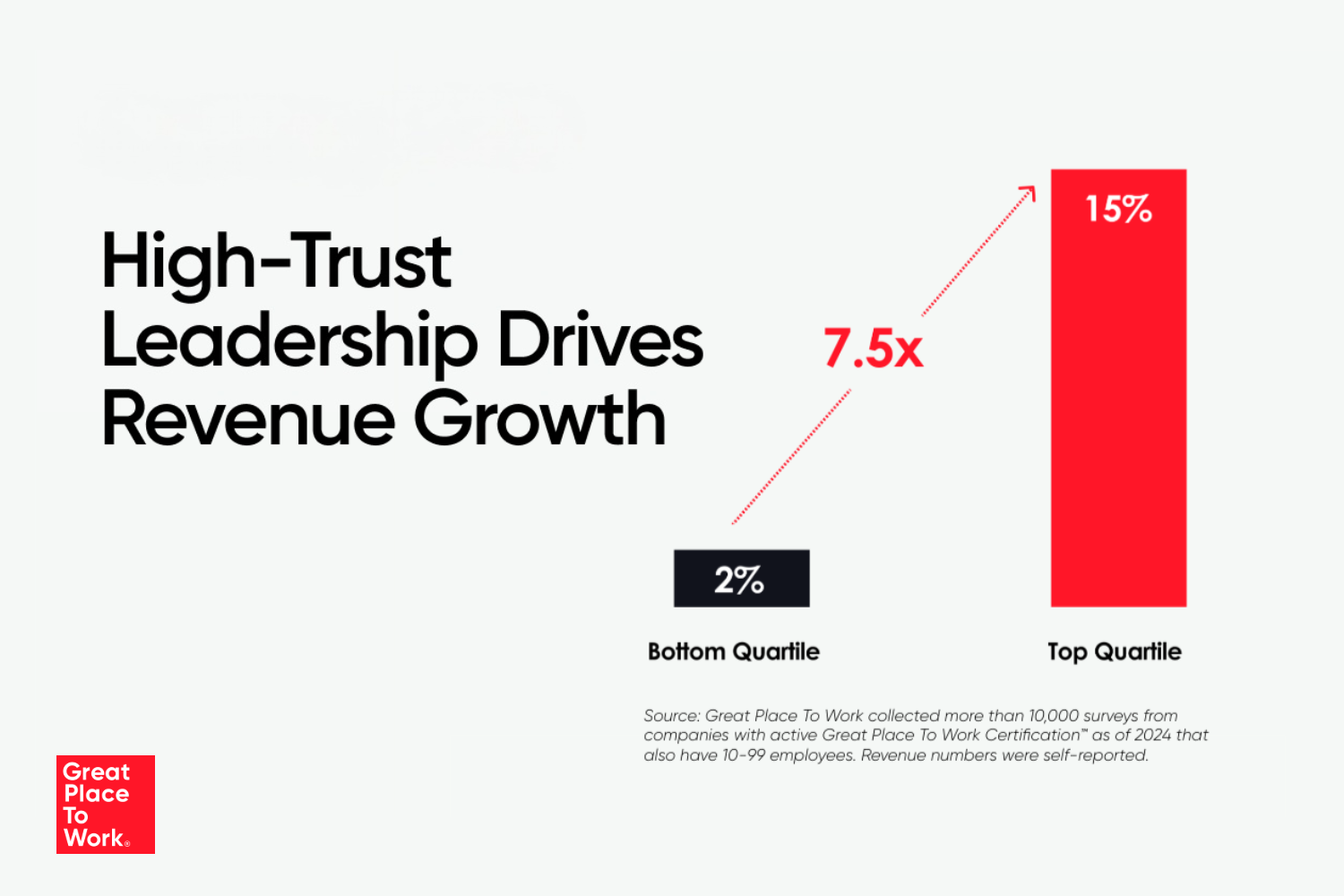
Leadership & Management, Millennials in the Workplace
By Claire Hastwell and Raven Tolbert.
They’re the most talked about generation of all time, but most of today’s workplaces are letting them down. Our survey of millennial employees uncovered that just 44% of millennials in all U.S. businesses are having a positive experience at work – the lowest figure of any generation.
More so than other generations, millennials lack faith in their leaders – 67% of millennials do not believe management’s actions match its words.
Leadership style is pivotal for improving the employee experience of millennials. And according to our research, when you understand generational differences, you can improve the effectiveness of your interactions with millennials.
We analyzed over 267,000 employee survey comments to find out how each generation defined the term “leader.” It turns out that each group has a unique take on how they expect leaders to model values, show up in critical moments (or not), and connect with their teams.
Specific themes and phrases came up frequently when millennials praised their leaders and people managers:
- Ability to “connect” diverse workforces to a “common purpose”
- Have their employees’ “long-term growth” and “personal interests” in mind
- Show up during “critical moments” in their “personal life” or career
- Seen as embracing ambitious goals and consistently leading with a distinct “mindset”
What do millennials want from their managers?
Based on our analysis of millennial survey responses, here are seven ways leaders can better manage millennial employees:
1. Show up in critical moments – the personal moments
In survey comments, millennials regularly praised their managers for showing up in crucial moments in their personal lives. This was a contrast to Gen X who described critical moments as ones related to the long-term future of the business.
For example, a millennial employee at Panda Restaurant Group – a Best Workplaces for Millennials™ winner – praised how their manager helped them make a big life decision.
“Our leaders take an active role in helping associates identify their goals at Panda as well as their personal life and how to achieve them. Whether it be to pursue higher education or buying a home. For example, one employee called her Regional Director of Operations before her family when she purchased her home because her leader was advising her through the complicated process!”
2. Focus on long-term growth
Among millennials who admired their people managers, words like “growth” and “development” came up often.
Where other generations described effective leaders as being “engaging,” “smart” and “strategic,” millennials also appreciated managers who has their “best interests” at heart, particularly their long-term career and personal growth.
3. Create connections across teams
More so than other generations, millennials see leadership as embracing the potential of connecting diverse people. Millennials are natural proponents of creating better experiences for all employees and making sure each and every person can bring their full, best self to work.
Focus on aligning teams with a common purpose to better engage and activate millennial employees.
4. Be a facilitator, not a problem-solver
When millennials described how their managers helped them in problem situations, the word “empathetic” was mentioned most often.
Unlike Gen X, who want someone who can come in and solve a problem, millennials want moral support and understanding to help them work through the problem themselves.
Managers who are seen to be saving the day and showering themselves in glory are not celebrated by this generation. Instead, millennials appreciate it when leaders let them be the hero by giving them the tools to reach their full potential.
5. Lead with a unique mindset
Unlike Gen Z, who described their ideal leader as embodying the values of the company, millennials complimented leaders who lead from an internal compass.
Rather than modeling external values of the company, millennials look up to managers who lead with a unique “mindset” – a word repeated in the survey comments that described leader values.
6. Answer tough questions and be authentic
Some questions can be tough to answer. But those are the ones that make or break employees’ faith and trust in their managers.
Despite best intentions and efforts, missteps and misunderstandings happen. The only way to address them is to be honest and to take in all feedback so you can know where the breakdowns are happening – then you can tackle them head on.
When leaders are transparent in tough moments, millennial employees know their leaders are deeply trustworthy, whether they get the answer they were hoping for or not.
7. Create genuine involvement
All generations want to be involved in decisions that affect them. But this experience is particularly powerful for millennials.
When they feel involved, they’re 4 to 64 times more likely to give extra, stay longer, recommend their workplace, and contribute their best to their workplace.
Show up right now
Millennials look to leaders to show up strongly in critical moments to help individuals grow or deal with issues in their personal lives. And as we collectively experience a pandemic that impacts us not only at work but at home, it is especially vital to millennials that leaders consider them all whole people, not just employees.
As managers, the above insights should spark reflection on your leadership style and how you are communicating with millennials in a way that resonates.
The learn more about what millennials want at work:
- Ask us about our employee survey and engagement tool
- Download our managing millennials research to learn more key findings
- Read stories from companies making work great for millennials on our blog










